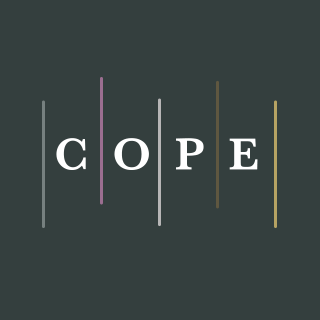These ethical guidelines have been adapted from ethical principles outlined by the Committee on Publication Ethics (COPE). They serve as a framework for ensuring ethical conduct in research, writing, and peer review processes within the Kasetsart Journal of Social Sciences.
Ethical Guidelines for Editors
These guidelines outline the ethical responsibilities and practices expected of editors in academic journals. The guidelines cover various aspects, such as editorial decisions, fairness, confidentiality, conflicts of interest, quality assurance, transparency, feedback mechanisms, and editorial independence. The ethical guidelines cover eight topics:
1. Editorial Decisions: Editors should base their decisions on the manuscript's importance, originality, clarity, and relevance to the journal's scope, regardless of the authors' identity.
2. Fairness and Impartiality: Editors should evaluate each manuscript based on its academic merit without discrimination based on race, gender, sexual orientation, or religious belief.
3. Confidentiality: Editors and editorial staff should maintain the confidentiality of submitted manuscripts and not disclose information about them, except as required for the review process.
4. Disclosure and Conflicts of Interest: Editors should declare any conflicts of interest and refrain from handling manuscripts that may involve a conflict. They should also act if a conflict of interest arises during the review process.
5. Quality Assurance: Editors are responsible for ensuring the quality of published material, maintaining the integrity of the academic record, and promptly addressing issues of plagiarism, fraudulent data, or unethical research practices.
6. Transparency and Integrity: Editors should promote transparency in the review and publication process, ensuring that appropriate corrections, retractions, and apologies are issued when necessary.
7. Feedback and Complaints: Editors should provide mechanisms for authors to appeal editorial decisions and address complaints ethically and transparently.
8. Editorial Independence: Editors should make decisions free from commercial interests and influence, maintaining the journal's editorial independence.
Source:
Committee on Publication Ethics. (n.d.). Code of conduct and best practice guidelines for journal editors. Retrieved, 2023, November 24, form https://publicationethics.org/resources/code-conduct
Committee on Publication Ethics. (n.d.). Ethical guidelines for peer reviewers [PDF]. Retrieved, 2023, November 24, form https://publicationethics.org/sites/default/files/ethical-guidelines-peer-reviewers-cope.pdf
Committee on Publication Ethics. (n.d.). Core practices. Retrieved, 2023, November 24, form https://publicationethics.org/core-practices
